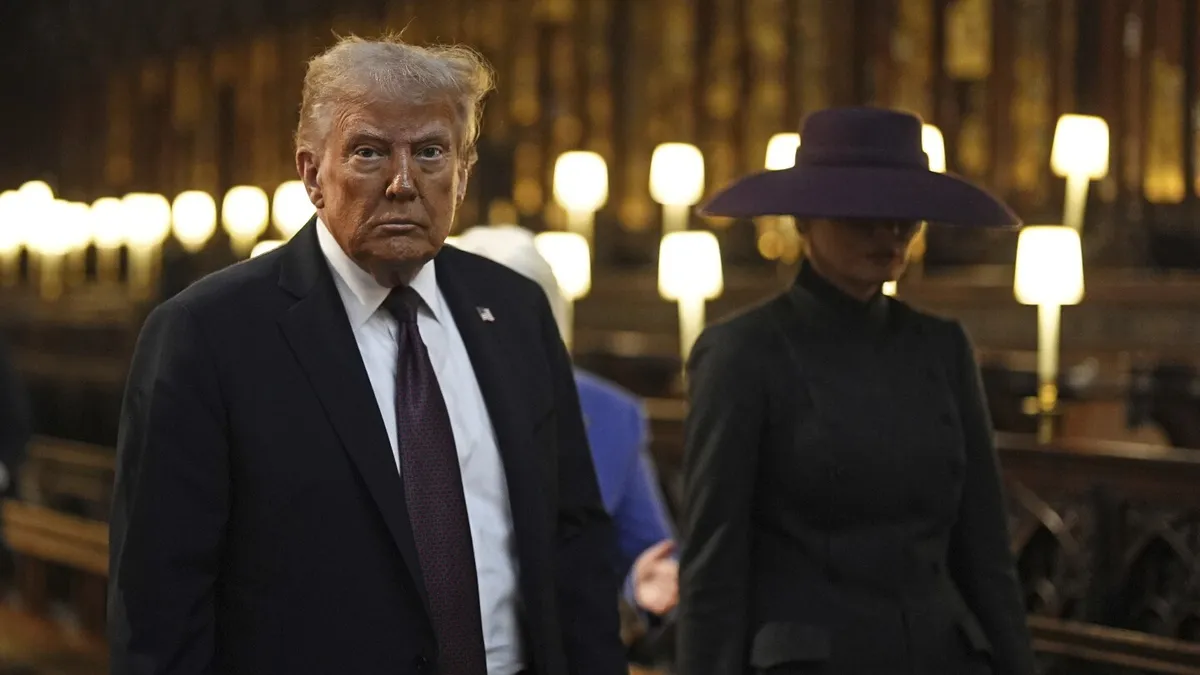
On Thursday morning, President Donald Trump announced his intention to designate antifa as a “major terrorist organization.” This controversial group, short for “anti-fascists,” represents a collection of far-left militant factions rather than a single entity. Antifa groups are primarily known for their opposition to fascism and neo-Nazism, particularly during protests and demonstrations across the United States.
One significant challenge in labeling antifa as a terrorist organization lies in its decentralized nature. The White House has yet to clarify how it plans to officially categorize a movement that lacks a formal hierarchy. Trump made this announcement while on a state visit to the United Kingdom, sharing his thoughts in a social media post just before 1:30 a.m. local time. He characterized antifa as a “SICK, DANGEROUS, RADICAL LEFT DISASTER,” reflecting the administration's ongoing concerns about the group's activities.
In addition to the label itself, Trump indicated he would be “strongly recommending” investigations into the funders of antifa. It’s important to note that antifa is classified as a domestic entity, which means it does not qualify for inclusion on the State Department’s list of foreign terrorist organizations. This list currently includes extremist groups like ISIS and al-Qaida, and being on it allows the Justice Department to prosecute individuals for providing material support to these groups, even if that support does not lead to violence.
Currently, the U.S. lacks a domestic equivalent to the foreign terrorist organization list, primarily due to the broad protections provided by the First Amendment. Over the years, there have been calls to implement a domestic terrorism law, especially following mass shootings linked to white supremacists, but no singular statute has been established to date. During a recent exchange with reporters, Trump expressed his willingness to pursue a domestic terrorism designation for antifa, contingent upon the support of Attorney General Pam Bondi and his Cabinet members.
Republican Senator Bill Cassidy from Louisiana endorsed Trump’s announcement, stating that antifa has exploited genuine grievances to incite violence and chaos, undermining justice for all. He praised the President for recognizing the harmful actions of antifa by considering this significant designation. In July 2019, Cassidy, along with Senator Ted Cruz of Texas, introduced a resolution in the Senate aimed at condemning antifa's violent actions and calling for its classification as a domestic terror organization. The issue resurfaced in 2020 amidst the protests following the death of George Floyd, when Trump reiterated the idea of designating antifa as a terrorist group.
The implications of such a designation are far-reaching, and it remains to be seen how the administration will navigate the complexities of establishing legal frameworks to address domestic terrorism while respecting constitutional rights.